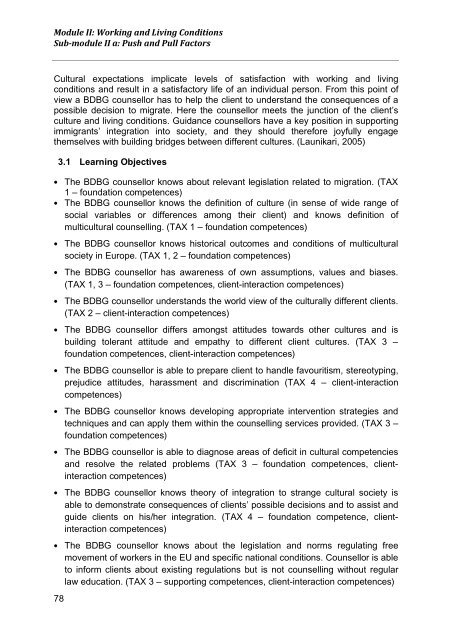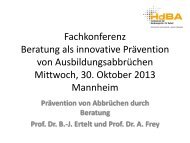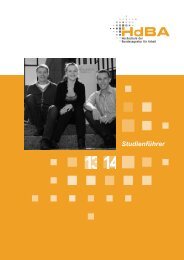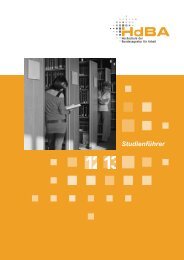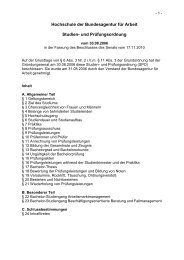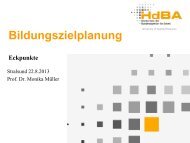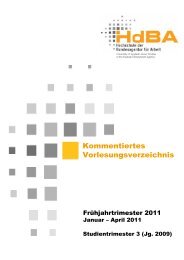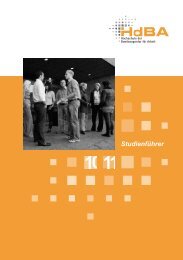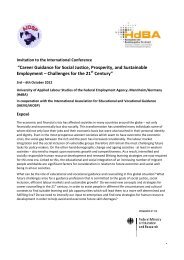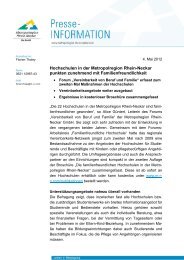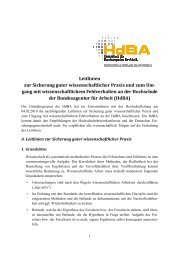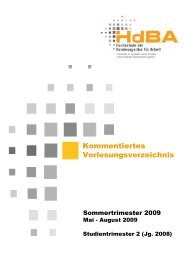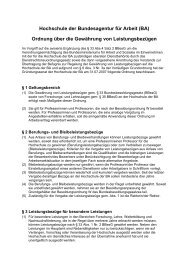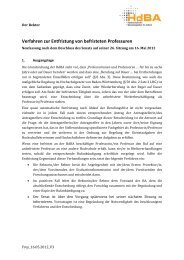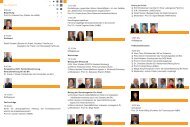Brain Drain - Hochschule der Bundesagentur für Arbeit
Brain Drain - Hochschule der Bundesagentur für Arbeit
Brain Drain - Hochschule der Bundesagentur für Arbeit
Create successful ePaper yourself
Turn your PDF publications into a flip-book with our unique Google optimized e-Paper software.
�����������������������������������������<br />
���������������������������������������<br />
�<br />
�<br />
Cultural expectations implicate levels of satisfaction with working and living<br />
conditions and result in a satisfactory life of an individual person. From this point of<br />
view a BDBG counsellor has to help the client to un<strong>der</strong>stand the consequences of a<br />
possible decision to migrate. Here the counsellor meets the junction of the client’s<br />
culture and living conditions. Guidance counsellors have a key position in supporting<br />
immigrants’ integration into society, and they should therefore joyfully engage<br />
themselves with building bridges between different cultures. (Launikari, 2005)<br />
3.1 Learning Objectives<br />
• The BDBG counsellor knows about relevant legislation related to migration. (TAX<br />
1 – foundation competences)<br />
• The BDBG counsellor knows the definition of culture (in sense of wide range of<br />
social variables or differences among their client) and knows definition of<br />
multicultural counselling. (TAX 1 – foundation competences)<br />
• The BDBG counsellor knows historical outcomes and conditions of multicultural<br />
society in Europe. (TAX 1, 2 – foundation competences)<br />
• The BDBG counsellor has awareness of own assumptions, values and biases.<br />
(TAX 1, 3 – foundation competences, client-interaction competences)<br />
• The BDBG counsellor un<strong>der</strong>stands the world view of the culturally different clients.<br />
(TAX 2 – client-interaction competences)<br />
• The BDBG counsellor differs amongst attitudes towards other cultures and is<br />
building tolerant attitude and empathy to different client cultures. (TAX 3 –<br />
foundation competences, client-interaction competences)<br />
• The BDBG counsellor is able to prepare client to handle favouritism, stereotyping,<br />
prejudice attitudes, harassment and discrimination (TAX 4 – client-interaction<br />
competences)<br />
• The BDBG counsellor knows developing appropriate intervention strategies and<br />
techniques and can apply them within the counselling services provided. (TAX 3 –<br />
foundation competences)<br />
• The BDBG counsellor is able to diagnose areas of deficit in cultural competencies<br />
and resolve the related problems (TAX 3 – foundation competences, clientinteraction<br />
competences)<br />
• The BDBG counsellor knows theory of integration to strange cultural society is<br />
able to demonstrate consequences of clients’ possible decisions and to assist and<br />
guide clients on his/her integration. (TAX 4 – foundation competence, clientinteraction<br />
competences)<br />
• The BDBG counsellor knows about the legislation and norms regulating free<br />
movement of workers in the EU and specific national conditions. Counsellor is able<br />
to inform clients about existing regulations but is not counselling without regular<br />
law education. (TAX 3 – supporting competences, client-interaction competences)<br />
78


